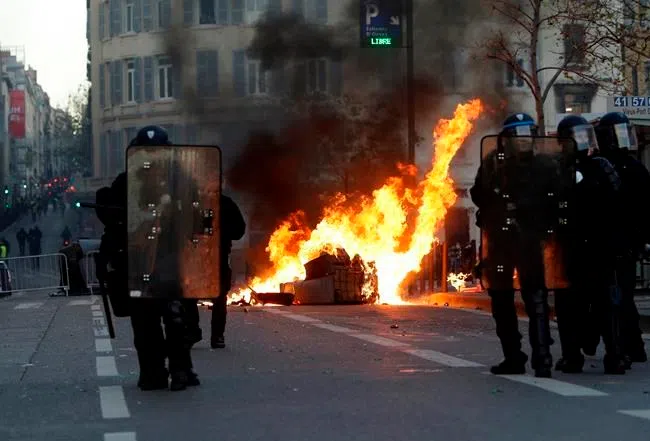
Macron to break silence, address French nation amid protests
PARIS — Pressure mounted on French President Emmanuel Macron to announce concrete measures to calm protests marked by violence when he addresses the nation Monday evening, and breaks a long silence widely seen as aggravating a crisis that has shaken the government and the whole country.
The president will consult in the morning with an array of national and local officials as he tries to get a handle on the ballooning and radicalizing protest movement triggered by anger at his policies, and a growing sense that they favour the rich.
Macron will speak from the presidential Elysee Palace at 8 p.m. (1900 GMT), an Elysee official said. The official wasn’t authorized to speak publicly and requested anonymity.
Government spokesman Benjamin Griveaux said earlier on LCI TV station he was “sure (Macron) will know how to find the path to the hearts of the French, speak to their hearts.” But, he added, a “magic wand” won’t solve all the problems of the protesters, known as “yellow vests” for the fluorescent safety vests they often wear.
